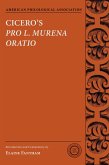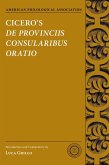Perhaps no other single Roman speech exemplifies the connection between oratory, politics and imperialism better than Cicero's
De Provinciis Consularibus, pronounced to the senate in 56 BC. Cicero puts his talents at the service of the powerful "triumviri" (Caesar, Crassus and Pompey), whose aims he advances by appealing to the senators' imperialistic and chauvinistic ideology. This oration, then, yields precious insights into several areas of late republican life: international relations between Rome and the provinces (Gaul, Macedonia and Judaea); the senators' view on governors,
publicani (tax-farmers) and foreigners; the dirty mechanics of high politics in the 50s, driven by lust for domination and money; and Cicero's own role in that political choreography. This speech also exemplifies the exceptional range of Cicero's oratory: the invective against Piso and Gabinius calls for biting irony, the praise of Caesar displays high rhetoric, the rejection of other senators' recommendations is a tour de force of logical and sophisticated argument, and Cicero's justification for his own conduct is embedded in the self-fashioning narrative which is typical of his
post reditum speeches. This new commentary includes an updated introduction, which provides the readers with a historical, rhetorical and stylistic background to appreciate the complexities of Cicero's oration, as well as indexes and maps.
Dieser Download kann aus rechtlichen Gründen nur mit Rechnungsadresse in A, B, BG, CY, CZ, D, DK, EW, E, FIN, F, GR, HR, H, IRL, I, LT, L, LR, M, NL, PL, P, R, S, SLO, SK ausgeliefert werden.









